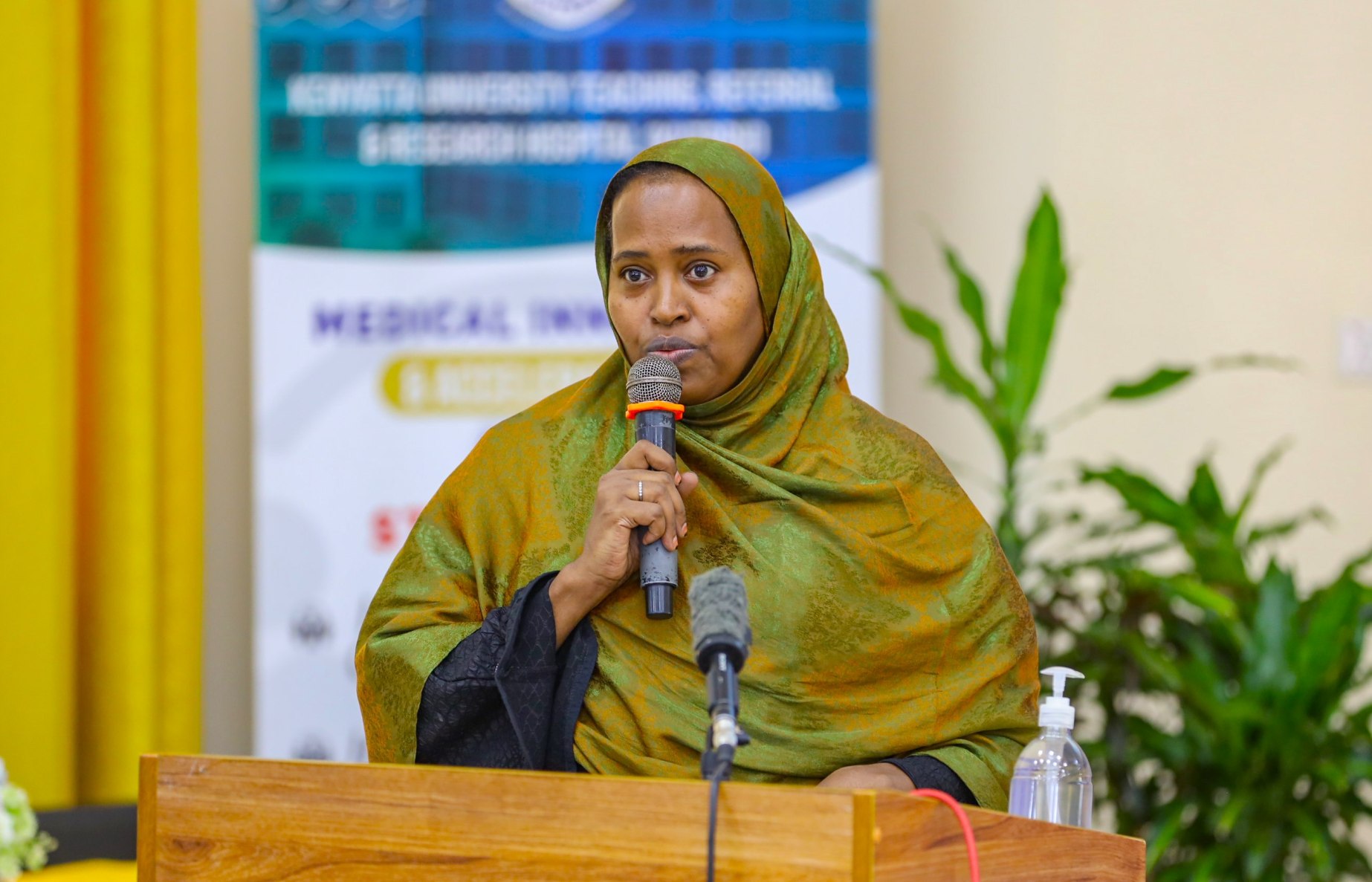Millions in debt and waste: Kenyatta University hospital under fire

The hospital’s top officials, headed by Acting CEO Dr. Zainab Gura, faced tough questioning on stock disposal, patient debts, and budget overruns during a committee session.
The National Assembly’s Public Investments Committee on Social Services, led by Navakholo MP Emanuel Wangwe, has raised serious concerns over financial management and operational challenges at Kenyatta University Teaching, Referral and Research Hospital (KUTRRH), following the Auditor-General’s report for the 2022/2023 and 2023/2024 financial years.
The hospital’s top officials, headed by Acting CEO Dr. Zainab Gura, faced tough questioning on stock disposal, patient debts, and budget overruns during a committee session.
The report flagged Sh15.1 million of obsolete stock in the hospital’s inventory, mainly PPEs donated during the COVID-19 pandemic.
Dr. Gura said, “These PPEs were received in kind from partners during the pandemic. However, after the pandemic subsided, they were no longer usable and were incinerated.”
The Committee pressed for official documentation of the disposal, with Wangwe asking, “Do you have a certificate from the National Environment Management Authority (NEMA) to support the disposal?”
Ndhiwa MP Martin Peters Owino added, “We’re talking about the disposal of potentially hazardous materials. Is there a policy guiding this?”
A hospital supply chain manager said the incineration was done internally using NEMA-certified equipment, but the Committee maintained that formal certification is essential.
Patient debts amounting to Sh1.29 billion were another key concern. Of this, Sh123.5 million is owed by individual patients, with Sh61.6 million considered doubtful.
Dr. Gura explained, “We enter payment agreements with such patients using collaterals like title deeds, allowing us to release beds for more urgent cases. We also make provisions for bad debts and write them off if recovery is deemed impossible.”
The hospital has implemented a Standard Operating Procedure for debt management and now conducts socio-economic assessments on admission to reduce unpaid bills.
The hospital also exceeded its approved budget by Sh1.29 billion, 21% above the Sh6.13 billion allocation, mainly due to employee costs and goods and services.
Dr. Gura acknowledged the over-expenditure, blaming it on rising patient numbers and unfunded statutory deductions such as NSSF and Housing Levy.
“The hospital had requested an allocation of Sh7.28 billion, but only received Sh6.13 billion,” she said, appealing for increased funding to meet personnel needs. The hospital faces a personnel funding shortfall of Sh.1.5 billion in the 2024/2025 financial year.
Committee Vice-Chairperson Caleb Amisi urged the hospital to improve service quality, noting, “If we get our health system right, we can reduce the burden on Kenyans who travel abroad for treatment and even attract foreign patients.”
His views were supported by Jackson Kosgei, who lamented the lack of basic services in public hospitals, pushing many to seek care abroad.
